RL Kramer, Hocus Focus: Coming of age with ADD and its medications | Recovery Conversations
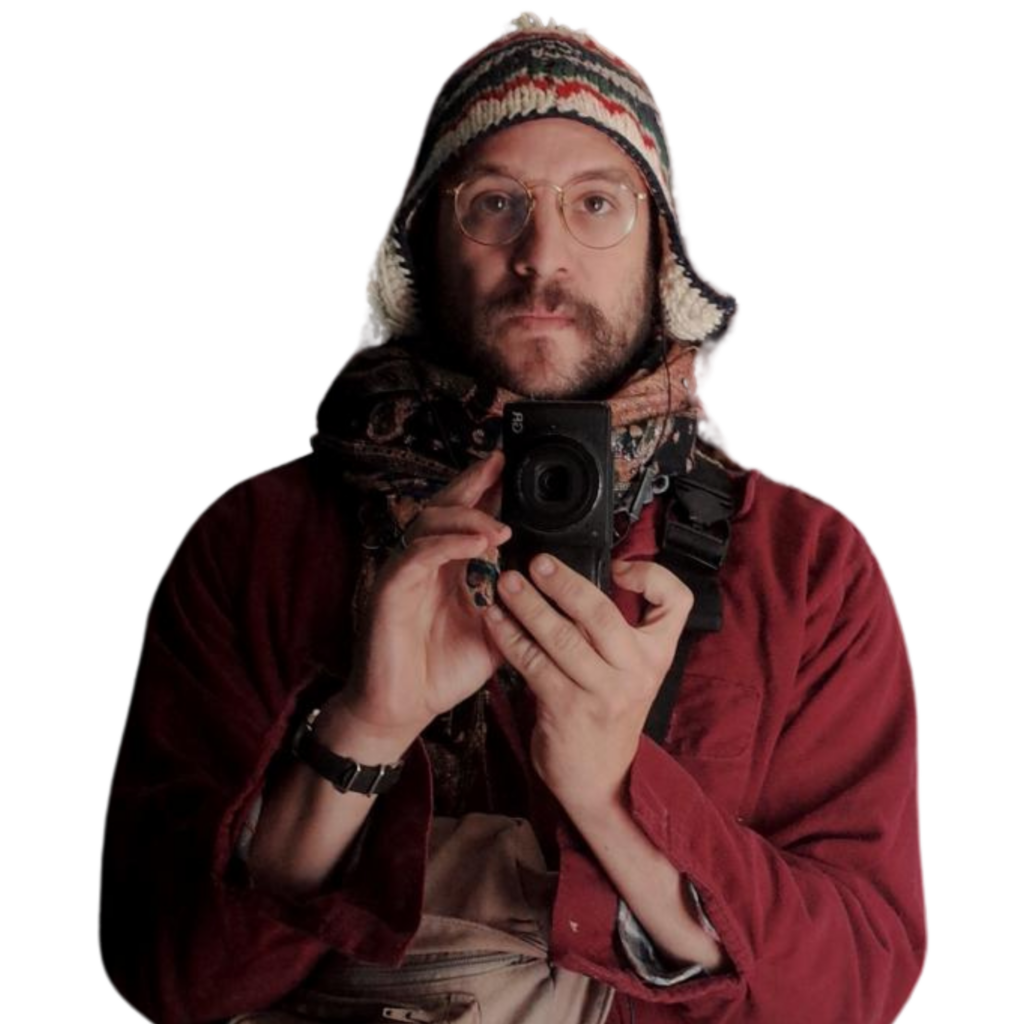
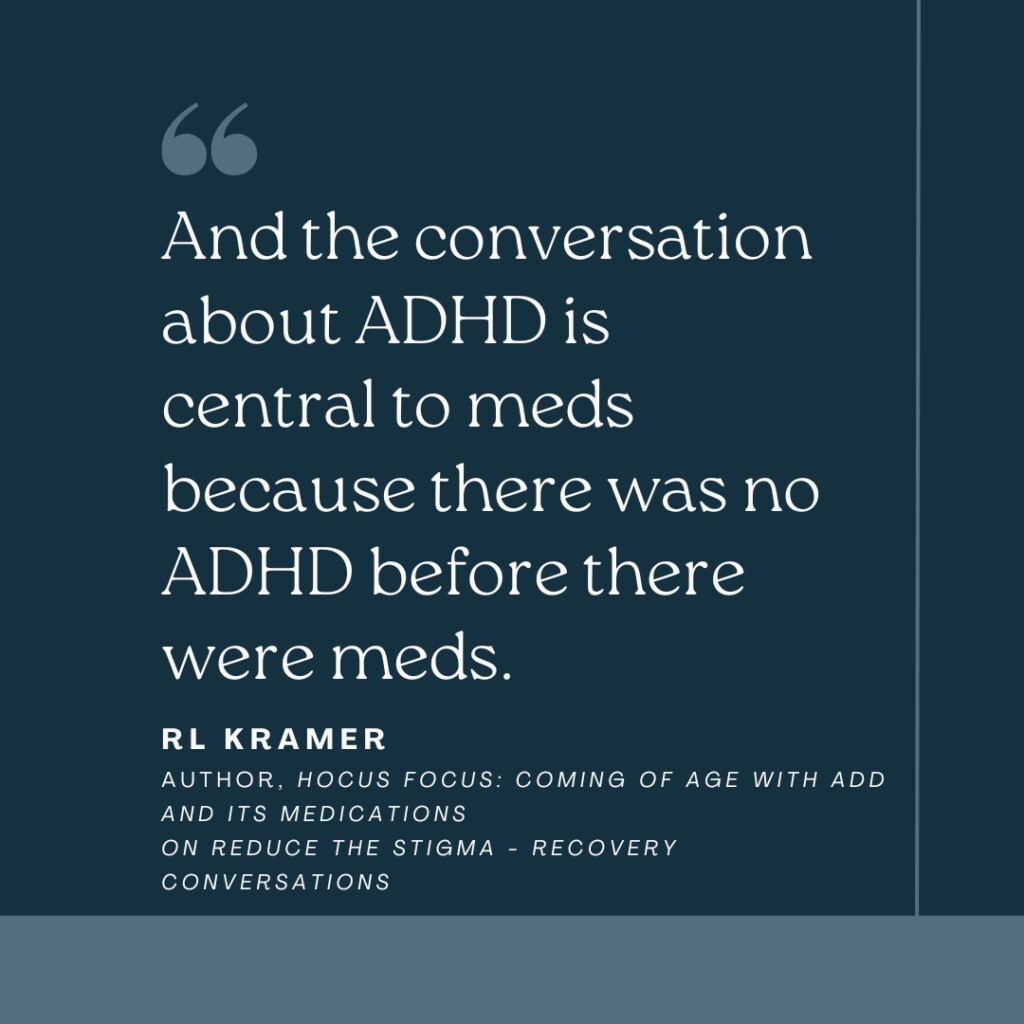
ADD/ADHD has received a lot of attention in recent years for the over-prescribing of medications. In fact, the US is experiencing a nation-wide shortage of medications used to treat ADD/ADHD. While the diagnosis has been in existence since the 1960s, albeit under a different name, the prevalence of ADD (now known as ADHD) and its medications surged in the 1990s among elementary-aged children. As a result, we’re now able to gain insight into the impact of childhood medications on personal development and adulthood.
In this episode of Reduce The Stigma – Recovery Conversations, RL Kramer, author of Hocus Focus: Coming of age with ADD and its medications, Kramer shares his experiencing growing up with prescribed medications, starting at the young age of seven years old. Kramer’s story will have you rethinking our quick acceptance of recommended medications. A supporter of everyone doing what’s best for them, his message is that we all be more informed and aware of the potential consequences of medications, particularly amphetamines.
Connect With A Peer Specialist
Are you someone who has been diagnosed with ADHD or identifies as being neurodivergent? Here are two peer specialists ready to support you using shared lived experience. Or, find a peer for other lived experiences: straightupcare.com
Meet The Peer Interview: https://reducethestigma.com/v/KaYdBC
Schedule with Mickayla: https://straightupcare.org/appointment-schedule/445
Meet The Peer Interview: https://reducethestigma.com/v/RG3E5f
Schedule with Belinda: https://straightupcare.org/appointment-schedule/5411113
Make sure you never miss an episode of Reduce The Stigma by subscribing on your preferred platform.
How to Watch
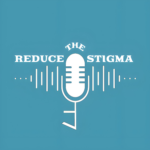
Watch on any device on ReduceTheStigma.com
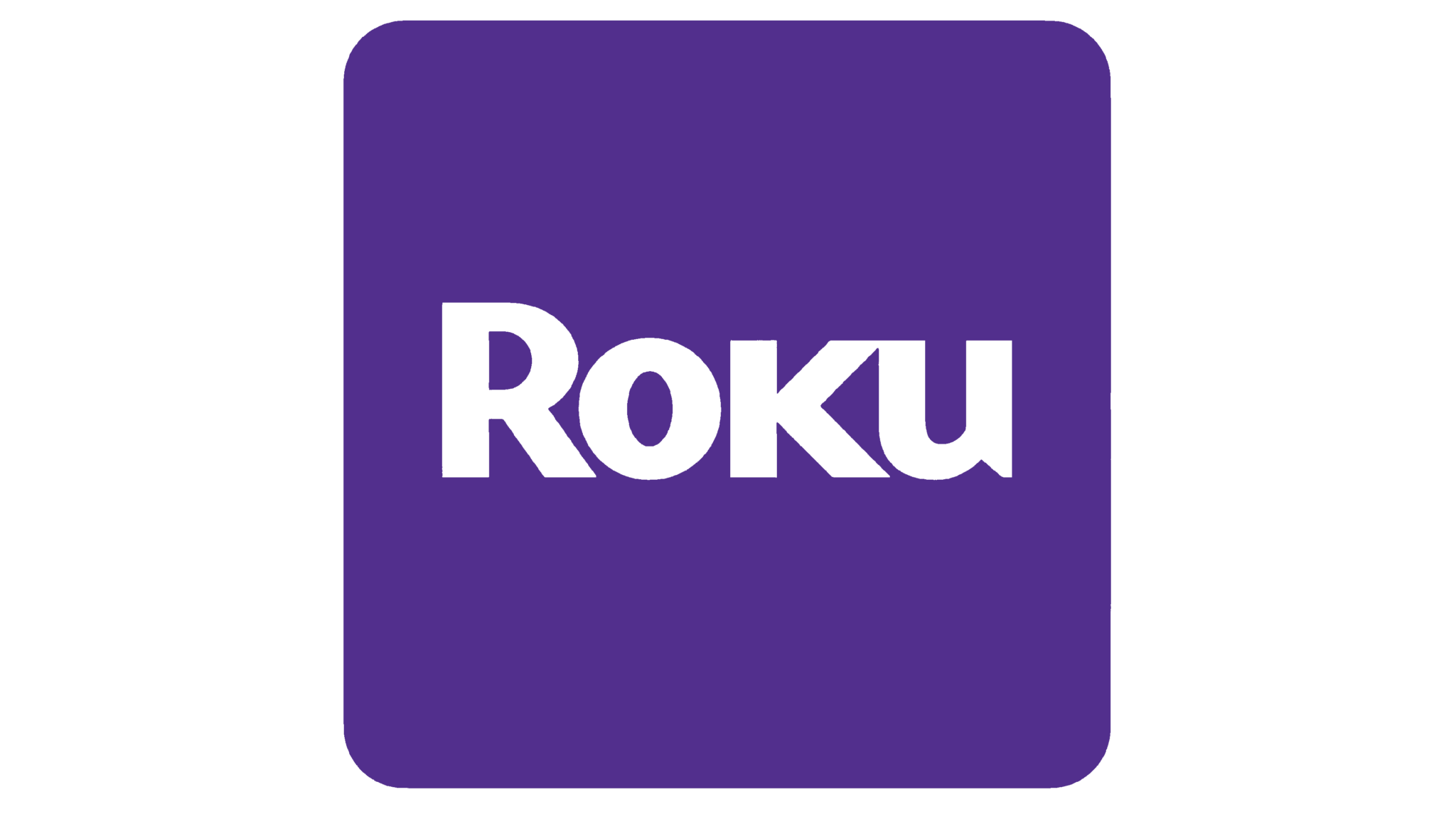
Install and Watch all Episodes on Reduce the Stigma RokuTV Channel

Install and Watch all Episodes on Reduce the Stigma Amazon Fire TV Channel
How to Listen
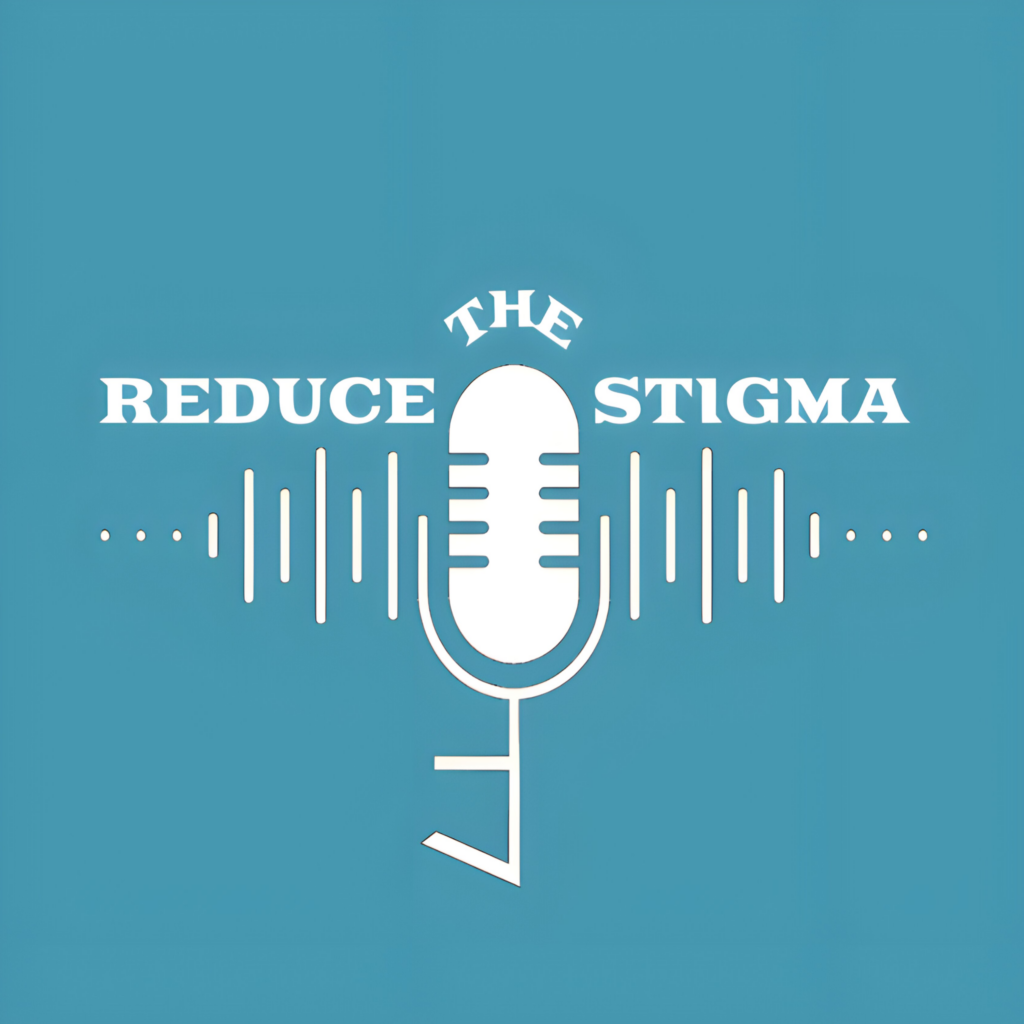
Our Podcast Website on Podops!
Listen on Apple Podcasts!

Listen on Spotify!

Listen on iHeart Radio!

Listen on YouTube Podcasts!
Follow Straight Up Care
Whitney Menarcheck | she/her (00:00)
The 1990s saw a surge in young children, particularly boys, being diagnosed with ADD, which we now know as ADHD. Many of these kiddos were prescribed amphetamines. But what does that mean for their development and for who they are today as adults? Stay tuned to hear the conversation with R. L. Kramer, the author of Hocus Pocus, Coming of Age with ADD and its Medicines. And you’re ready to be inspired as we reduce the stigma.
Whitney Menarcheck | she/her (01:40)
Hello and welcome to Recovery Conversations. Today’s conversation is with R .L. Kramer, the author of Hocus Focus, Coming of Age with ADD and its Medications. R .L., thank you so much for joining me today. I just finished your book the other day and it was a really great read.
R.L. Kramer (01:54)
Thank you.
Whitney Menarcheck | she/her (02:02)
a perspective that I haven’t heard before. And so I’d like to start with, if you could just set the stage for anyone who isn’t familiar with your book yet, what is your story about? What was Hocus Focus, the purpose of writing it?
R.L. Kramer (02:19)
So I started writing the book when I was about 23, 24 years old and I was withdrawing from Adderall, which I had been taking in some shape or form since I was a child. When I was seven years old, I was diagnosed ADD. And it’s an important distinction. I’ve gotten some comments about the title that it says ADD and not ADHD. And there’s a semantic battle sort of going on with ADD versus ADHD. And I was diagnosed ADD, so that’s why I use that term. But…
I was given amphetamines when I was seven years old in the form of dexedrine. And I took that on and off until about seventh grade. And then I was off dexedrine until I was 15 years old when I was introduced to Adderall. And I took Adderall intermittently until the age of 23 or 24. And when I was withdrawing from Adderall, I kind of chose to take a look at this whole phenomenon by way of examining my own experience to examine.
the cultural experience of taking amphetamines and the history of amphetamines as they relate to our culture and ADD and my own personal journey of learning how to focus and manage what was diagnosed as ADHD without the use of amphetamines.
Whitney Menarcheck | she/her (03:36)
And you know, it’s said so easily as part of your story, but I think we need to highlight seven years old, you were prescribed with medications. That’s just so young at such a vulnerable developmental age, the brain is nowhere near finishing its development. And so I just want to make sure everyone heard that.
R.L. Kramer (03:47)
Yes.
Whitney Menarcheck | she/her (04:03)
um it’s just i think about that little boy right
R.L. Kramer (04:05)
Yeah, I was a small child. And I think what was interesting is I was the youngest person in my class. I was a late birthday kid. You know how there’s always a kid who’s nine to like 11 months younger than the rest of the students. I was one of those kids. And at the time of diagnosing, I’ve seen some statistic that I can’t pull up accurately, but somewhere above majority kids who are diagnosed are often in that bracket because that developmentally.
nine months for children is significant.
Whitney Menarcheck | she/her (04:36)
Right, and they’re being compared to their classroom peers who are developmentally advanced compared to them. Right, but if you look at them at their age and their developmental age, then they’re right on track. But it’s just that comparison that can be kind of the thing that puts the spotlight on the kiddo.
R.L. Kramer (04:41)
Mm -hmm.
Yeah, sometimes a whole year.
Yeah. Yeah. And it’s important to point out too, that my experience is totally anecdotal. You know, some people, they have different experiences, but for me, the medication did sidetrack me, I think, in retrospect, but I did like them.
Whitney Menarcheck | she/her (05:13)
And I think if we can talk about that a little bit more because I know that at one point in your book you wrote about how you’ll never know what the medication could take away. You also don’t know what it could it gave to you and talk and you talk about that.
reflection in processing what it could have been like developing without the medication. What do you see as something that really stands out to you as part of your growing up that was impacted by the presence of the medication?
R.L. Kramer (05:47)
positively or negatively.
Whitney Menarcheck | she/her (05:49)
wherever you’d like to go.
R.L. Kramer (05:51)
Okay, well, the medication to kind of reduce it down, what I think the medication does for did for me and does for a lot of people is it biochemically gets me going and gets me motivated and gets me completing tasks, more or less effortlessly, without having to surpass this barrier of discomfort or motivation or whatever it is that’s keeping me from working. The medication acts as what I considered like
a neurological prosthetic that would function, that would get my executive function in motion. So then without that prosthetic, my ability to regulate my own executive function was totally depleted in withdrawal. So then you become obviously dependent on this mechanism to get you going. But in terms of some things, I mean, I think it’s, it’s really hard to pinpoint, but I did develop my brain, you know, I blazed neural pathways as a young person.
on amphetamines. And yeah, sometimes I think like pattern recognition or certain approaches to tasks and highly detailed. Sometimes I think maybe that was taking all the amphetamine, but like the book says, there’s no control group on the study of the individual of myself without a twin who had all my experience and stuff like that.
And so sometimes I wonder if I have those advantages almost like sometimes traumatic experience can strengthen us, but we still kind of are not super stoked that it happened.
Whitney Menarcheck | she/her (07:25)
Right, right. If we could have, we would have stopped it, but then we also recognize that there’s a developmental impact that, you know, we can take some good things away from it. And, you know, I don’t, as I was reading your book, I found myself thinking about that we don’t.
think about the long term impact of a medication. Yes, we think about side effects if it’s effectively communicated to us. Maybe we do our own research and we may think about like the physical long term effects. So high blood pressure, you know, something like that.
But I’m curious how common it is for people to really think about the personality and coping skills development, particularly for individuals who are prescribed a medication at a young age as they are growing up and going through those processes. And it sounds like there is an impact, positive and negative, on who the person becomes and then the skills that they may feel they lack as a result of.
R.L. Kramer (08:33)
Yeah, and I think it’s really close to impossible to measure because it’s so complex and so nuanced and so down to such significant details that for me didn’t really reveal themselves clearly until I was in withdrawal and I realized how much, how many things were dependent on it and also certain elements, for example, when it came to like dating and connecting with people intimately.
after a long time of Adderall, it really started to change the way I interacted with people. And it made me very difficult to, I think, form deep connections with others. And it was very clear that like, when I stopped taking it, I wasn’t effective at work, but people were connecting with me. It’s almost like what I told myself a lot was that it was, if I imagined that I had a finite amount of human energy, you know, 100 units, for example, that on Adderall,
abundance of those units went to my brain. I was very brain centric. I would come into a social situation using my brain. How can I adapt to this situation and be likable or charismatic or make this person want to talk to me? Whereas, you know, now normally it’s I’m listening, I’m just here, it’s in the heart. So I think it depleted my heart a little bit, not to be a woo woo, but
Whitney Menarcheck | she/her (09:56)
No, I mean, I think that’s a great way to explain it because, you know, it’s like…
fight or flight, we go to the resources of our brain, right, and our essential organs. And it sounds like that’s almost what Adderall was doing to you as well, where you were in that place of almost authenticity and genuine connection because everything was taking you to that analytical level and brain first. Yeah.
R.L. Kramer (10:14)
Hmm.
Mm -hmm. Yeah, and I think part of my healing, my addiction to add it all was learning how to relax that analytical part of myself.
Whitney Menarcheck | she/her (10:38)
How did you go about that?
R.L. Kramer (10:44)
To be completely honest, I had a big reckoning with it in the midst of an ayahuasca ceremony. So, you know, I know that a lot of the talk on this show I’ve listened is about complete sobriety and I don’t know how people would feel about psychedelics for improving or almost as a further therapeutic sense.
Whitney Menarcheck | she/her (11:04)
We’re all about whatever is best for the person.
R.L. Kramer (11:07)
Okay, yeah, I mean, there was one one particular instance on with that substance, where I was really confronted with a representation of the analytical mind. And it’s, they’re silly in retrospect and talking about these things. But I was sort of trapped. And it’s kind of everybody’s biggest fear when it comes to psychedelics that something’s going to flip in their mind and not really stop. And it really pushed me into that analytical part. Like, I think,
that that medicine can take you to the parts of yourself that you try to suppress and really make you look them right in the eye. And I was really battling with analyzing the ceremony and like what was going on there. And I was trying to ask myself, there’s like another part of me that’s like, I don’t want to do this. Can we stop the analysis and explanation and just be here? And it kind of led me to this insight that really stuck with me is that, does it make you feel
good to be right? Or does explaining things help you feel safe when you can’t let go and into the unknown? And just accept that I can’t know everything, I can’t name everything. And that explaining things in the long run doesn’t always make me happy. And that maybe I can let go a little bit and just just hang around and be here and be ordinary.
Whitney Menarcheck | she/her (12:31)
That’s beautiful to think of, that acceptance of letting go of some control almost. Yeah.
R.L. Kramer (12:40)
Yeah, and giving yourself some trust in something other than your brain.
Whitney Menarcheck | she/her (12:45)
That’s hard. It is really hard. I’m just thinking about that just personally if I had to. That’s that stuff that that’s not a natural process, especially when. Society really pushes us to think primarily with our brain and and not to touch or tap into those other sources of knowledge within us.
R.L. Kramer (12:46)
Yes.
Mm -hmm.
Yeah, yeah, and a lot of the medicines that we prescribe, I think, you know, as a culture, are encouraging of that, you know, because I probably, as a child, was very emotionally driven, you know, by impulse and feelings and what I wanted and what I thought and what I wanted to say. And that’s not conducive to a behaviorless pedagogy.
Whitney Menarcheck | she/her (13:40)
Right. And kind of going back to that child, I couldn’t help but think about, you know, who was…
You think about medication. Medication is prescribed to fix something. I’m saying that in quotes. Or, you know, there’s a problem and it’s a solution or because someone’s suffering in some sort of pain. And reflecting on your story and your presentation of it, I couldn’t help but think, well, who was actually suffering? It didn’t seem to be seven year old you. It seemed to be the adults.
that then took your energy that maybe was a little bit more than they were used to and then put you force you to better meet their needs in the classroom or where have you.
R.L. Kramer (14:29)
No, absolutely. At that time, it seemed to be for the convenience of my mom and my teacher. But, you know, I take responsibility and accountability for enjoying the medicine and then later in life.
Whitney Menarcheck | she/her (14:44)
So let’s talk about that because you do share that there became a time when you started to enjoy it and were using it different than as it was prescribed. And what are your thoughts on any role, if there was one, of being prescribed the medication early on than to you using it more the way that you wanted to rather than as prescribed?
R.L. Kramer (15:14)
Well, I didn’t really ever take it. I never like went on benders or anything like that. It was more or less staying well within the window of prescription with a couple of times where I had like a few, a few like two or three day experience where I didn’t get much sleep, but mostly I did stick to my prescription regimen and I did enjoy it. You know, I was prescribed 20 milligrams of time release Adderall in the morning and I was given the option to take five or 10 milligrams of the salt in the afternoon.
And even when I was 15, I sort of was really slacking off in school on purpose and medication was kind of a punishment for that. So I was really groggy and I really didn’t want to get back on the medication. But the, you know, and I was kind of forced to, and the first time I took it, I went to school and I was really pepped up and I was a really effective student. And then after school, when I was skateboarding, I had an aptitude on skateboarding that I had never had before.
you know, and I had this connection with my body that totally made me be like, okay, I’m on board. I like this. And the, something that happens that I see a lot because we’re experiencing a wave on social media, I’m sure you’re seeing of mostly young women, young men as well, but a lot of young women who think, who are saying that they were missed because, um, in, in the nineties and early aunts, it was the targeting of ADHD diagnosis was angled toward young boys.
So, and a lot of these people though, who are coming out and creating social media accounts based on their ADHD, they often are saying, I feel like this is who I always am and who I’ve always been. And I kind of, I have feelings about that because I felt that way too. But then I, after, you know, 16 years, I think that must, that’s kind of a delusion. And that’s one of the most, you know, my retrospective perspective without taking it. I’m like, that’s so dangerous.
because now you are immediately handing your identity over to a substance. And it’s so, I think the reason your podcast stood out to me is because it’s a stigma. A lot of people are saying, stop the stigma around medication. And I’m thinking, well, maybe it should be a little stigmatized. Maybe we should be really careful about this because you’re giving a lot of yourself away. And it takes…
It takes over you like any other addiction, not to go too ahead, but once I was withdrawing, I was like, this is a drug addiction. I’m in a drug withdrawal. I had not even realized it because you have a support system. The people who care about you most, your parents, your doctors, your teachers, and later in life, your employers, they all will start to prefer the version of you on these medication. So it’s very different from other.
substance addictions or dependences in that it actually makes you sometimes a better member of society.
Whitney Menarcheck | she/her (18:21)
A little bit more compliant sometimes.
R.L. Kramer (18:24)
Oh for sure. You know, I had the oppositional defiance thing going on big time.
Whitney Menarcheck | she/her (18:29)
Which is a fascinating thing to me that someone can be.
prescribed medication that truly helps to wind them down in many ways. I know for you, it really kind of revved you up though. And then an oppositional defiant disorder, I don’t know. You’re the second person this week I talked to who was prescribed amphetamines at a young age and then received an ODD diagnosis as well. And oh, oh, oh, I apologize.
R.L. Kramer (18:42)
Later.
I wasn’t diagnosed with ODD. I just know that that’s typically kind of in the umbrella of ADHD. And I was like anti -authoritarian.
Whitney Menarcheck | she/her (19:04)
Yeah, well.
And I would, again, you said there’s no way to know based off of because it’s one person, one life. But I had also would love if we could get in time machine to see if those moments were when maybe you, the medication wasn’t in your system. Because I know you mentioned that whenever you weren’t on the medication, things like came to the surface. It was like you were finally like experiencing certain things that you hadn’t whenever the medication was in your system.
R.L. Kramer (19:35)
Yeah, when I was a child.
Whitney Menarcheck | she/her (19:36)
Yeah. And so it’s like, okay, were you defiant or were you figuring it out because it had been kind of subdued, medically subdued?
R.L. Kramer (19:45)
Yeah, and there’s something in a clinical term I think it’s called the rebound effect when it comes to ADHD medication. So you end up being more, displaying more ADHD behaviors than you had prior to beginning medication. There’s a bounce back effect.
Whitney Menarcheck | she/her (20:01)
Right. Right. And that goes back to the not building those coping skills because you had the medication doing it for you.
R.L. Kramer (20:10)
Yeah, yeah. So for me, I think it really prolonged a certain part of my development as a person. And I mean, that’s beneficial because then I identified that when I was in my twenties and I was like, all right, let’s, let’s pretend I’m a little kid and I need to learn how to work hard and be disciplined.
Whitney Menarcheck | she/her (20:26)
Yeah, which is, that’s not an easy thing to do, especially whenever you’re at an age when people expect a different level of maturity and certain behaviors. So then be processing and going through that to try and catch up in a way.
R.L. Kramer (20:46)
Oh no, it’s literally the opposite of easy. Because I was like, this is supposed to be hard. That was kind of the insight I was sticking with is like, I shouldn’t be breezing through any of this. I’m supposed to get uncomfortable, find resistance, not want to do something, and just keep my head down and do it.
Whitney Menarcheck | she/her (21:05)
I’m so glad you shared that. I think it’s interesting. That stood out to me in your book as well, because you wrote about, and clearly I’m a fan of your book because I can reference it and quote it pretty well, but you wrote about how you thought, okay, anytime there’s a challenge, okay, this is my deficit, therefore I don’t have to even try. And a lot of times people want to get out of those tough times.
R.L. Kramer (21:29)
Yeah.
Whitney Menarcheck | she/her (21:34)
And here you are saying there’s so much value in going and pushing through that it’s actually beneficial to feel that. It is at least what I took away. Is that resonating with what your message was?
R.L. Kramer (21:48)
Yeah, well, I just knew that that’s what I had to do because my throughout my academic childhood, I did feel like I kind of holstered this excuse like anytime I stumbled like, well, you know, I have a learning disability. So this makes sense that I would struggle with this. And I think also when I was in the withdrawal, I was so in the pits. I was so bad. I was like, you know, I’m going to feel like like crap. If I sit around here, I don’t feel like crap. If I get out,
and try to get a job anyways. So if I’m gonna feel like crap either way, might as well push myself.
Which I feel like is in the ADHD community kind of goes along with this, this advice we’re not supposed to give. Cause people are like, Oh, you can’t just say, work harder, try. That’s what I did.
Whitney Menarcheck | she/her (22:37)
Yeah. Yeah. Why? Why? I’m curious. Why can’t you say those things? Or why shouldn’t you say those things?
R.L. Kramer (22:45)
I don’t know. I think it’s really weird because, you know, I’ve promoted this book to try to, you know, I don’t have a internet cloud. I don’t have anything. I just worked really hard on writing for the past decade, but because of my participation in the online ADHD conversation, my feed is totally saturated with ADHD influencers who do this for a living. So I see these patterns and I recognize most of the people who are
talking about ADHD are on meds and promoting meds. And the conversation about ADHD is central to meds because there was no ADHD before there were meds. So I know it’s a big part of the conversation and I think a lot of that, that sometimes when I see ADHD tips online, I wonder are these ADHD tips or are these daily amphetamine use tips? I’m not trying to be a jerk or stigmatize you for taking meds, but a lot of the tips you’re giving,
remind me of things, habits I would need to keep track of on meds. For example, remember to eat, remember to drink, you know, because you’re so focused and your metabolism is so, you know, just on that you would forget to eat or drink because you’re you have an external source of energy. So like when I see tips like that for ADD, I’m like, well, I don’t know. And I don’t know why people say they just get mad when you bring up getting a planner or
work trying harder. And I guess you can’t just tell someone who has an executive function problem to do harder. They have to, that’s, that is rude and it can be dismissive of their struggles.
So I understand that, but that is what helped me and to use a planner.
Whitney Menarcheck | she/her (24:32)
As I have one right next to me, I think it makes me think about, you know, mental health and substance use recovery that there’s no one pathway. There’s also no one pathway for someone who has ADHD. No two. I mean, it’s called neurodiversity. So, yeah, maybe the same or ADD as the diagnosis was back in the 90s. It may be under the same umbrella term, but each individual and what works for them is going to be different.
R.L. Kramer (25:02)
Yeah. Yeah. And I try to, I mean, I do kind of promote the med free approach. And I think people on meds sometimes feel attacked. And I’ve had to go on and say, it’s not my intention to tell people on meds they’re doing it wrong, but there are people who are trying to get off meds and what I’m providing is a valuable resource. And that’s what I want to speak to.
Whitney Menarcheck | she/her (25:28)
Absolutely, because meds aren’t going to work for everyone or for whatever reason someone may not want them. And that’s okay.
R.L. Kramer (25:33)
Yeah, I mean, the thing, I never thought they didn’t work for me though. You know, I get that. Yeah, and I gotta be honest, I didn’t choose to quit. You know, you read my story, so you know that my insurance didn’t work, things fell through. I just, I couldn’t access the meds and I actually was totally fiending. I was paying people on the street for five ants and stuff like that. So I didn’t willingly choose to quit them.
Whitney Menarcheck | she/her (25:39)
That’s right, because you said you liked how you felt on them and you found them.
R.L. Kramer (26:02)
But at a certain point I just said, all right, I’m going to figure this out. And I think they’re very, it’s very hard to turn your back on them once it’s part of who you are.
Whitney Menarcheck | she/her (26:12)
Right. I mean, you built a life with them being present. And if you like how you’re feeling, yeah, right. Why would you? And…
You know, we talk a lot about like, there’s been so much attention on opioids and doctors prescribing opioids and then the prescriptions getting cut off. But let’s also think about individuals, especially at that young adult age when they’re transitioning insurance and things like that, who could be on medication and then have it ripped away. And then we have a problem maybe with how they cope with that situation.
R.L. Kramer (26:46)
Oh yeah. And I understand why opiates are, they get more attention because the, there’s more at stake when it comes to their consequences in the body. You know, people, people are losing their lives more often with opiates and Adderalline amphetamine, it doesn’t have that reputation, but it does modify a person’s personality, I think.
Whitney Menarcheck | she/her (27:10)
Right, absolutely. And can lead to, you know, just a more of a willingness maybe to engage in other, I think you put it as mind altering, not just mind altering substances, but mind altering experiences.
R.L. Kramer (27:27)
Yeah, and when it came to substances, I think that Adderall or amphetamine was my gateway drug. You know, later in college and stuff, when someone offered me to experiment with a substance, I was always unafraid of trying something because I was so familiar with the idea of taking something to feel differently.
Whitney Menarcheck | she/her (27:46)
Yeah. And, you know, and love us to start to talk about that life post -medication for anyone who may be interested, particularly, you know, someone who’s been prescribed and found the means as you had been. What are the ways that you were able to fill the needs that you had? So coping skills, you develop routines, practices, what has been essential to you to tend to your yourself?
R.L. Kramer (28:16)
Well, when I stopped, I tried a lot of stuff, you know, and I think that was key is just to Google everything and give it a go and see how you feel and be open to seeing what fits because it’s so unique. It’s not a one size fits all the way medication is prescribed. So for me, what kind of is definitely a keystone is exercise. It’s very simple. But when I was first withdrawing, I forced myself to run.
And that helps because at least in the, you know, I, and I was always questioning, am I dealing with my ADD, my latent dormant ADHD that’s been waiting for me? Or am I dealing with amphetamine withdrawal? Either way, what works for that? And so exercise really helps because it does bring in those chemicals that you want, that dopamine, that serotonin, but it also, it trains, it trained me to do something I don’t want to do for a reward that is deserved and not.
simple to achieve. So just by running or lifting weights or doing yoga or riding a bike, just being physical in my body helps me get in my body and slow down.
and relax. And I think a big part was training that delayed gratification, like training delayed gratification.
Whitney Menarcheck | she/her (29:36)
Can you expand on that? What do you mean by training the delayed gratification?
R.L. Kramer (29:42)
I think just where on the medication, I was always doing things that felt good in the moment, even creative acts, you know, doing art or music just felt good at the time. And I wasn’t really putting down things for long, for later reward. Everything I was doing was for now. And by delayed gratification, I mean practicing guitar instead of playing it. Maybe for example, just that intention that I’m practicing.
I’m not playing. And projects that wouldn’t be done in an evening. Usually if I started a project on Adderall, I had to finish it before the day ended or else it would just fall to the wayside. So showing up to the same project every day. And in my withdrawal, I did this by learning how to play Clare de Lune.
on the piano.
Whitney Menarcheck | she/her (30:32)
with that is that is it an instrument?
R.L. Kramer (30:36)
Claire de Lune, it’s a piano piece.
Whitney Menarcheck | she/her (30:38)
Oh, oh, wonderful.
R.L. Kramer (30:40)
is a chapter in the book.
Whitney Menarcheck | she/her (30:41)
Okay, well that one I forgot. We’re gonna call me out on that.
R.L. Kramer (30:42)
No worries. Yeah, but just I showed up every day to learn this song and instead of something long, so an exercise regimen too, it’s something that you don’t get reward for the first time you exercise, but after going every day, every other day for a long period of time, you notice changes in your body, your strength, your flexibility, whatever. So having, and then the work I do now, which is like construction and carpentry, you know, it’s…
You show up every day and you work a little bit, I guess.
Whitney Menarcheck | she/her (31:14)
Yeah, you definitely can’t do many big projects in one day.
R.L. Kramer (31:18)
No. And there’s something too, I talk about in the last chapter about the Purae Ternis. You remember that one? And I think that a shift from pleasure to satisfaction, and that I think is just essential with maturity, is, you know, that when I complete a construction project, it’s not necessarily pleasurable, but it’s very satisfying. And I guess that also comes with sort of a sacrifice.
of my own desires and for pleasure.
Whitney Menarcheck | she/her (31:53)
Isn’t that a different type of pleasure? Being satisfied?
R.L. Kramer (31:57)
Mm hmm. Totally different. But for me, that was kind of a shift that was important. And that’s why I highlight in the subtitle of the book, though, the coming of age with ADD. Because some of it’s just growing up. But I grew up with this experience.
Whitney Menarcheck | she/her (32:13)
Yeah. And I’m curious, I would love to know, part of your story is a film that you were working on and it was really externally focused. And you said, I’m focusing on telling other people’s stories and why not mine? Or, you know, like I didn’t want to tell mine. You now are telling yours. What led you to start sharing your story?
R.L. Kramer (32:39)
Hmm. I started doing it. Um, I, well, when I started writing my book, I was writing a research memoir. So I was still doing that kind of ego led humility thing where I would be like, so getting over that, I think too, has been part of it. Cause I would try to be like, I want to be in the background. I’m not really going to do it. And because I’m so modest or humble and really that’s, that’s like a, a loop, you know, cause it’s actually.
egoic to try not, I don’t know, this is a different conversation, but yeah. So I was writing this book that was half research, half memoir. And I was sharing it with some other writing people and they’re like, just tell your story. Just there’s enough in that. And the through line of your truth will show people this thing. So I just, the writing process, I think helped me get over that. And I am writing a book now.
Whitney Menarcheck | she/her (33:12)
All of you, yeah?
R.L. Kramer (33:39)
that is the guide for unmedicated ADHD where I’m not really a part of the story.
Whitney Menarcheck | she/her (33:43)
excited to read that. So I’ll have to sign up for your newsletter or whatever notification I can get. That’s really exciting. And as we wind down, I’d love to ask you, and there’s a lot of very valuable things you’ve shared, but if there’s one thing people take away from our discussion, what would you like it to be?
R.L. Kramer (34:05)
I think that people should be more apprehensive before they listen to psychiatrists to be honest. I think that they see sometimes our struggle or our deficiencies in our own development as an opportunity to commodify. I have a lot of mistrust from them and I’m working through that as a person, but I do know people in my life who’ve lost their lives because of…
pharmaceutical medications and there’s no real recourse for it. And I just think that they treat symptoms and not sources. So, you know, I don’t want to tell people not to take a medication when they need it. But I just think that we should be a little more apprehensive and understand that the person who has the ultimate agency when it comes to ourselves is ourselves. So,
There are doctors and there are professionals who can advise us, but ultimately we have to figure out what’s right for us and who we should listen to in that regard. And just be careful because taking medication like that is not a light thing. At least amphetamines are the eighth most addictive substance in our world. So when you take it, you sort of sign a contract and it’s just a big decision.
Whitney Menarcheck | she/her (35:26)
Yeah. Thank you for sharing that. And for those who are interested in connecting with you, maybe finding your book, how can they reach out to you or where can they find it?
R.L. Kramer (35:40)
The book is available everywhere books are sold online. You know, Amazon and stuff like that. I have a website that’s RLKramer .us R L K R A M E R I have a lot of videos on YouTube where I talk about adderall and withdraw and stuff like that. And that’s RL Kramer and those links you can find on my website. And I’ll be at the Gaithersburg Book Fair on May 18th.
Whitney Menarcheck | she/her (36:06)
Well, I will make sure that we include all of your links in the show notes and in any posts so that people can connect with you and continue learning from you. Thank you so much, Arielle, for sharing your story, for taking a different approach and really just finding your pathway through it. I think that’s the thing that we all look for is to be us. And it sounds like you figured that out.
R.L. Kramer (36:33)
constantly, constantly shifting and changing. And I think that’s, that’s the trick too, is to that the ultimate, like I wanted to say when you’re asking, sorry to add on too much, when you’re asking about what I do, it’s I think it’s a constant progression that there’s no swish that’s been flipped. And ultimately growing as a person heals that my whatever ADD struggle I had and managing my stress and learning how to grow like that has been the most beneficial thing.
Whitney Menarcheck | she/her (36:43)
No, please.
Well, that’s wonderful. And I look forward to being an observer through your social media and your books as you continue to evolve as yourself. And for all of you who are listening, check out R .L. Kramer’s website, book, definitely on YouTube, and share with anyone who maybe this could resonate with.
Please be sure to pass this along because we want to keep getting stories out there and continue reducing the stigma. Thank you.
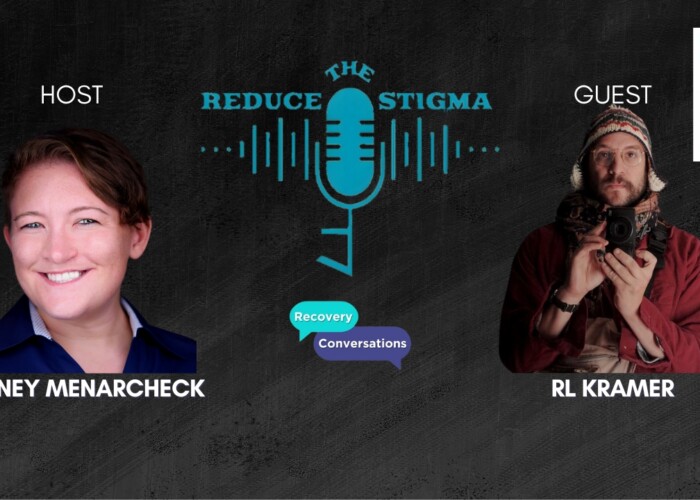
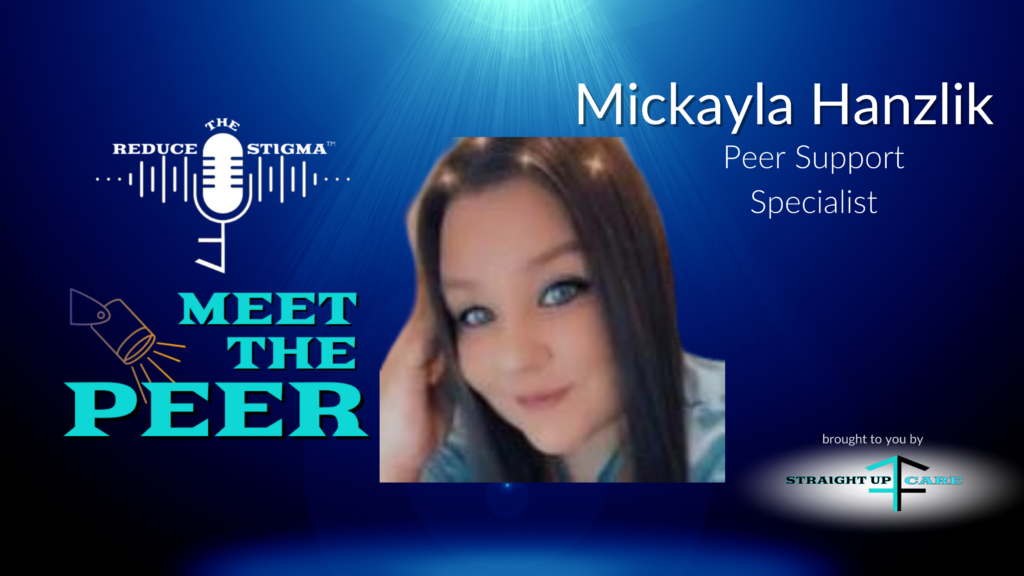
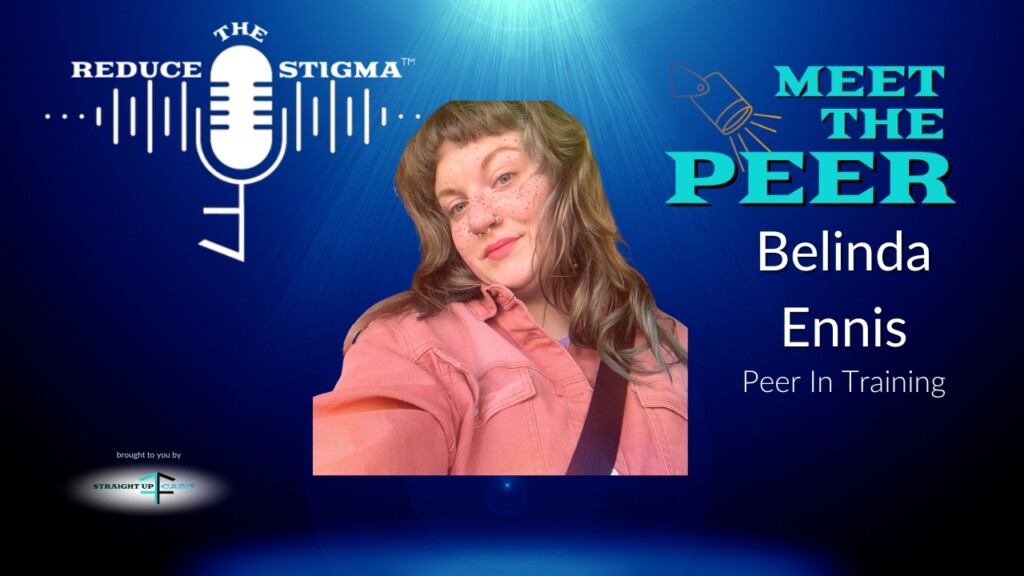
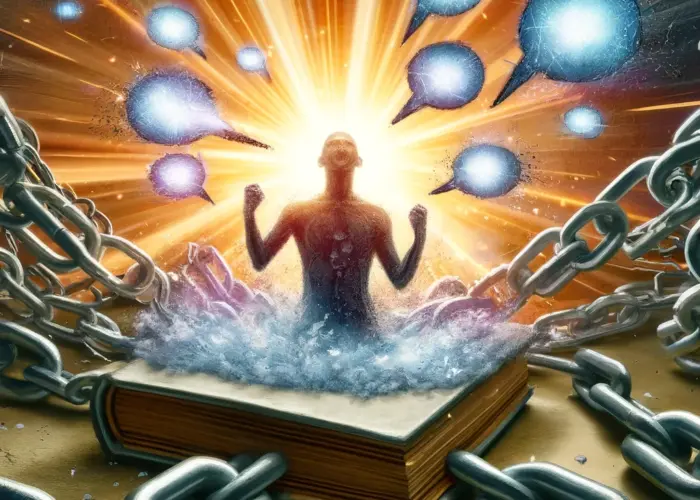
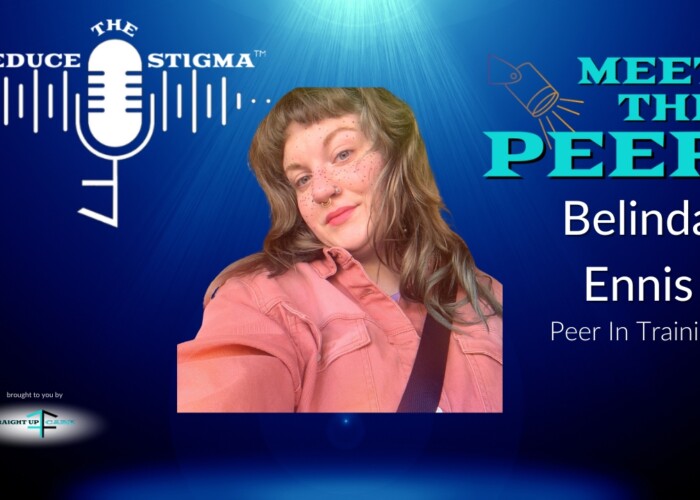
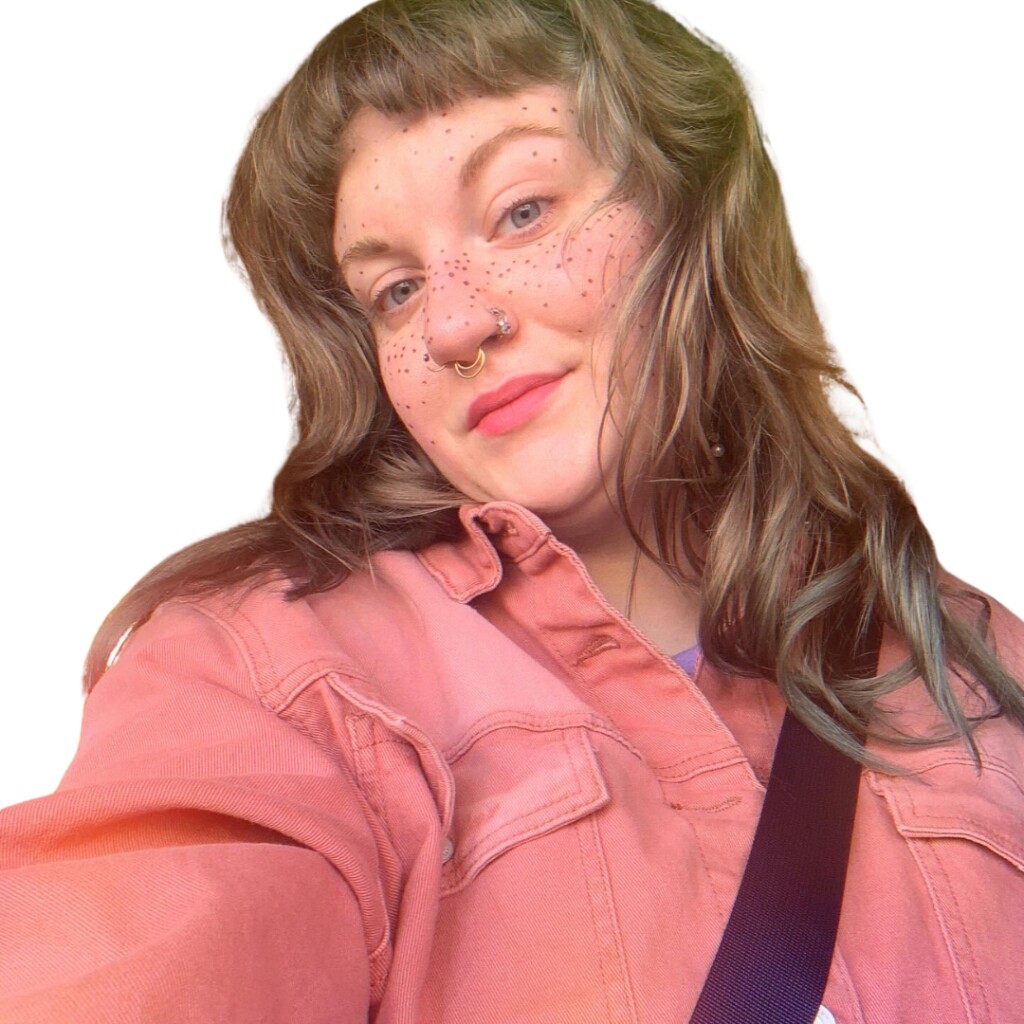
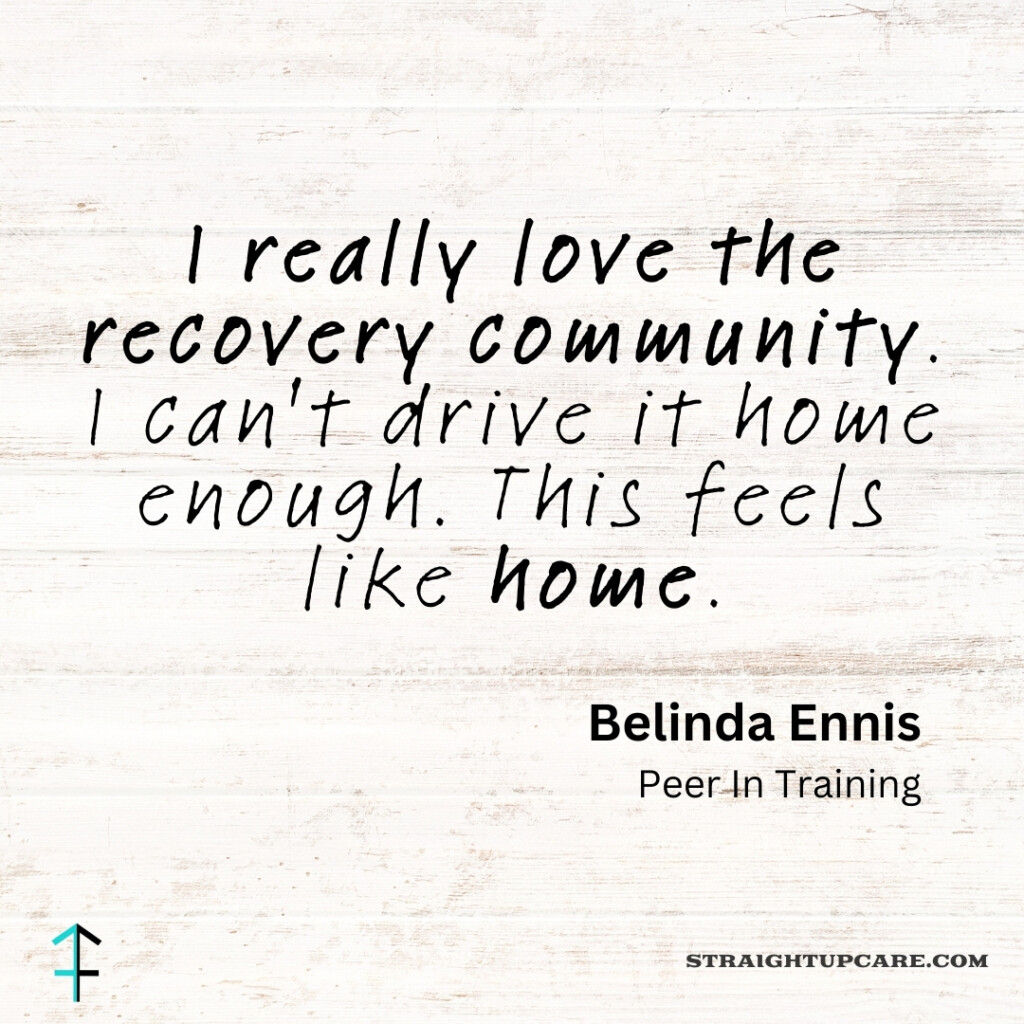
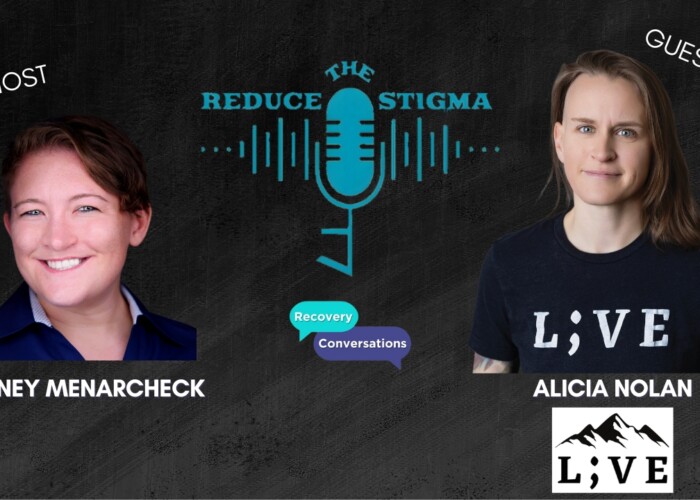
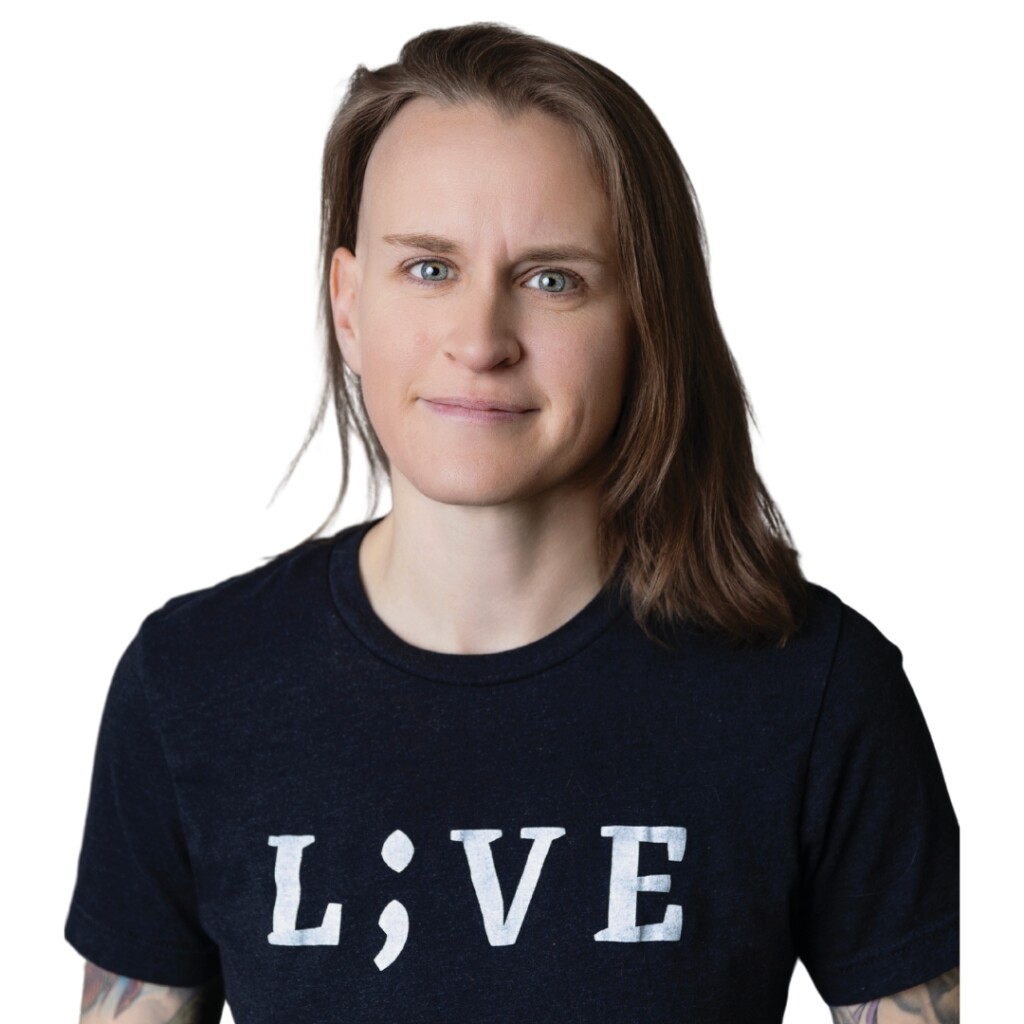
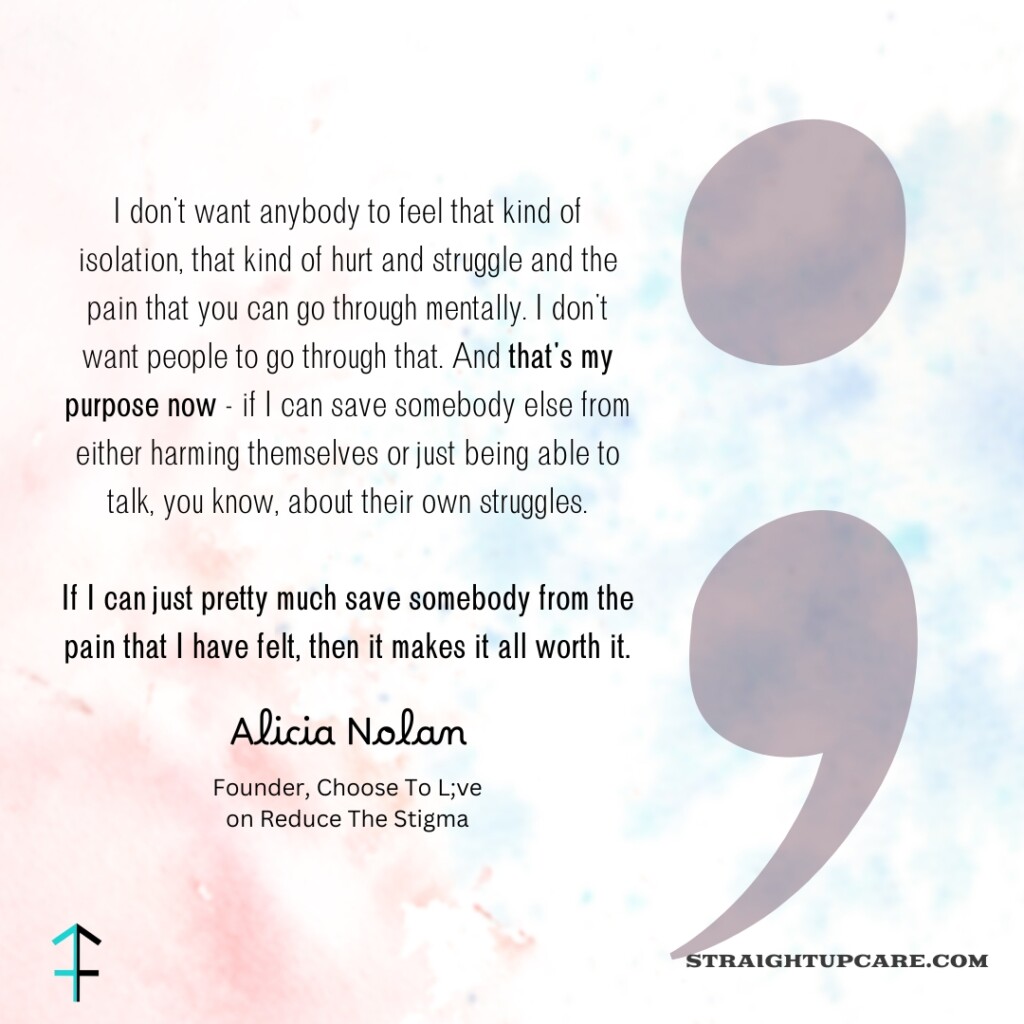
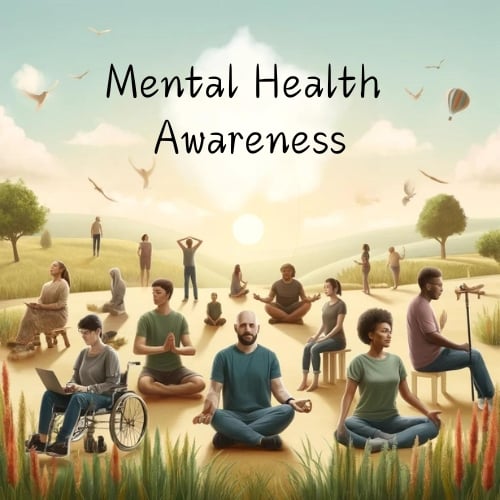
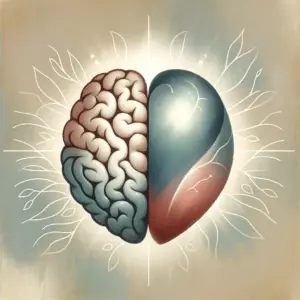
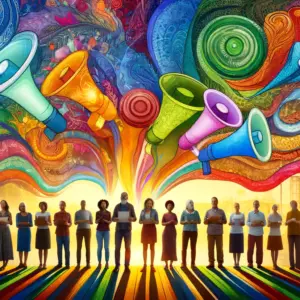 1. Amplify the Voices of Individuals with Lived Experience
1. Amplify the Voices of Individuals with Lived Experience 2. Educate Yourself and Others
2. Educate Yourself and Others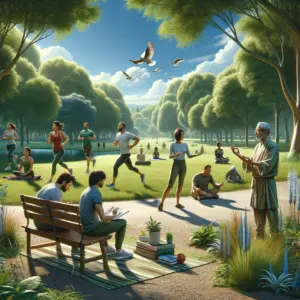 3. Practice Self-Care and Encourage Others to Do the Same
3. Practice Self-Care and Encourage Others to Do the Same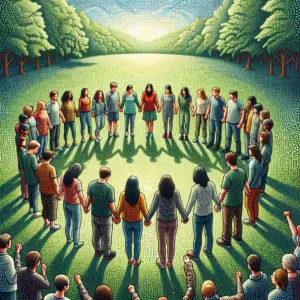 4. Challenge Stigma and Discrimination
4. Challenge Stigma and Discrimination 5. Foster Peer Support Networks
5. Foster Peer Support Networks